What’s going on?
On Monday, services sector union Verdi announced that workers in the rail and freight sector would be downing tools on April 26th. Wednesday’s strike is set to be the second round of disruption on trains in less than a week, following on from a nationwide strike called by rail union EVG on Friday.
Unlike Friday’s nationwide strike, though, this time around only certain regions of Germany will be affected. Industrial action is initially planned in the states of Schleswig-Holstein, Lower Saxony, North Rhine-Westphalia, Bavaria and Baden-Württemberg.
In a press release sent out on Monday, Verdi said the strikes would lead to disruption on regional rail transport and that it would provide more details of the plans “in good time”.
Much like other transport strikes we’ve seen in recent months, the current dispute is largely related to inflation. Verdi wants rail workers to be given an extra €550 per month over the next twelve months to help compensate for soaring food and energy prices.
So far, employers have countered the offer with the promise of twelve monthly tax-free payments of €160 – preceded by a €1,080 tax-free lump sum – and a 4.8 percent pay rise from mid-2024. They also want the agreement to run for 28 months instead of 12.
In other parts of the German transport sector, disputes are also raging on – from EVG’s battles over rail-sector pay to fights for better overtime bonuses in airports. Far from being over, it feels as if the transport chaos in Germany may be only just beginning.
READ ALSO: Living in Germany: Endless travel strikes, asparagus Automaten and more diversity
But weren’t those pay disputes resolved over the weekend?
Not exactly – but there’s plenty of room for confusion. For several weeks, services union Verdi had been engaged in tough wage negotiations for workers in the public sector, including employees of local transport companies.
This weekend, the two sides finally came to a deal – helped along by a third-party arbitration committee that pitched the final agreement. Local governments agreed to cough up a €3,000 tax-free lump sum in monthly installments until February 2024, and then offer workers a 5.5 percent pay rise, or a minimum of €340 extra per month.
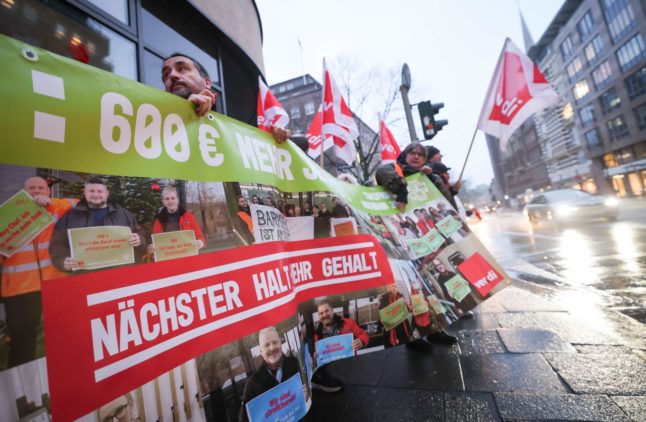
Though the agreement will be seen as a win by many workers, it nonetheless falls short of the 10.5 percent (or minimum of €500 per month) pay rise that Verdi was looking for.
“With our decision to enter into this compromise, we have gone to the limits of our tolerance,” Frank Werneke, head of the Verdi union, said in a statement on Sunday.
The last-minute agreement also meant that the country narrowly swerved unlimited strikes that could have paralysed local transport for days or even weeks on end. But it doesn’t quite mean that commuters are off the hook just yet.
READ ALSO: German public sector workers clinch 5.5 percent pay rise
Why are strikes allowed to continue after the deal?
This is all to do with the way Germany’s trade union laws are organised. Workers in certain sectors are covered by what are known as “collective agreements”, which set out pay and working conditions for a certain period of time.
For example, local transport workers are generally covered by TV-N – short for Tarifvertrag Nahverkehr – which translates as “Local Transport Collective Agreement”, while public-sector care workers would be covered by TVöD-P (“Public Sector Care Workers Collective Agreement”).
Every time one of these agreements expires, unions like Verdi set about thrashing out a new improved deal with the employers. This usually involves a few rounds of negotiations and – as most commuters know – a healthy number of warning strikes.
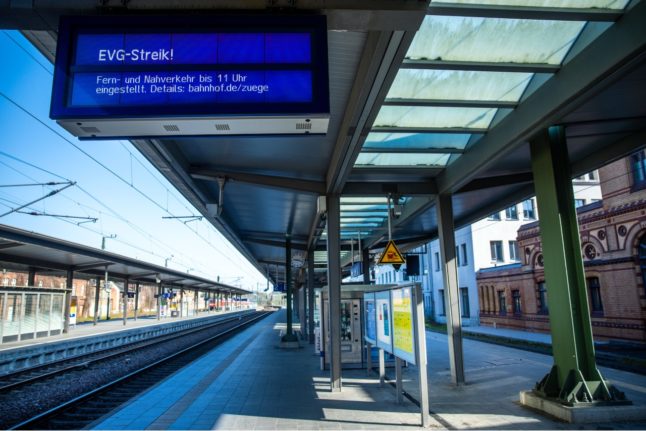
For the duration of the agreement, however, a so-called “peace obligation” is in place. That means that unions can’t suddenly decide they’re unhappy with their pay halfway through the contract and call a round of strikes.
This was one of the central issues in the public sector pay negotiations. Though Germany was hit by soaring inflation after the war in Ukraine, Verdi was unable to insist on better pay for workers until their two-year agreement expired.
The latest pay deal also has a 24-month term, meaning Verdi is barred from calling strikes or resuming negotiations on these agreements for another two years.
READ ALSO: Jobs in Germany: Should foreign workers join a union?
But – and this is the key point – not all transport workers are covered by those agreements. Though some airport employees negotiate their pay via the collective agreement for public sector airport staff, there are several others who are employed in the private sector, which is why we’re also seeing a wave of strikes at airports at the moment.
When it comes to rail workers, there are also various different agreements in place. The one Verdi is currently thrashing out is the snappily named “collective agreement for the employees of non-federally owned railways and road transport companies”. Rail union EVG also negotiates various contracts, including those specifically for employees of Deutsche Bahn.
So does this mean the transport chaos will continue?
In short, yes. Spring in Germany certainly seems to be collective agreement expiry season, meaning unions are currently engaged in numerous talks at the same time to try and get the best deal they can.
With airport and rail staff both trying to secure a hefty pay rise and better working conditions for the coming years, the coming weeks are likely to see numerous warning strikes take place.
In the case of EVG, the third round of negotiations with Deutsche Bahn kicked off on Tuesday, with no clearly defined end-date. However, they are likely to continue at least until Wednesday.
If the parties still fail to reach an agreement, that could lead to more warning strikes or what are known as “enforcement strikes”. These are strikes that continue on until one of the parties finally caves in.
Another thing that could happen is that various transport sector unions could team up to increase their impact – just like EVG and Verdi did when they called their ‘mega strike’ back in March.
This was a fairly new tactic in German industrial disputes, but if the unions think it was effective, it could be repeated yet again.

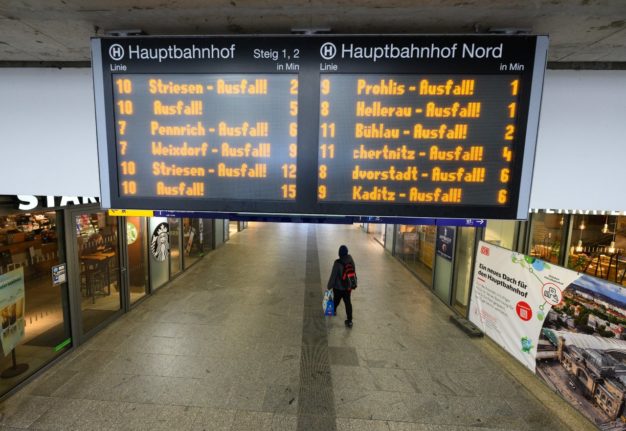
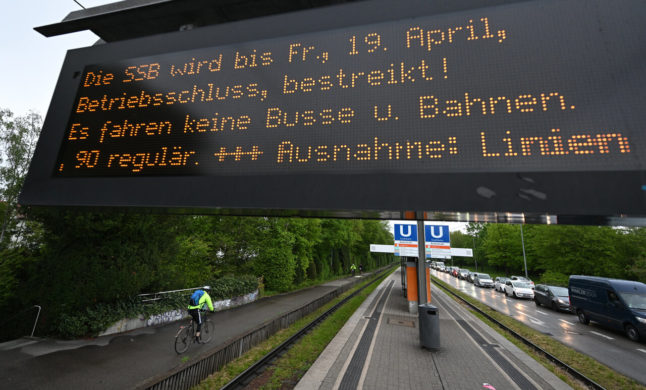
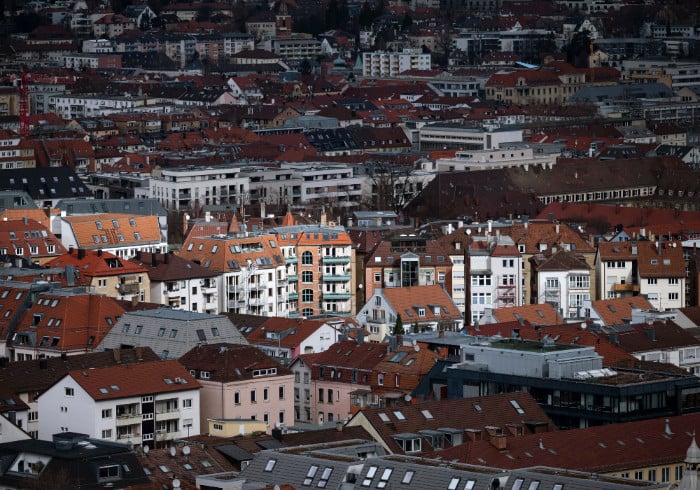
 Please whitelist us to continue reading.
Please whitelist us to continue reading.
Member comments